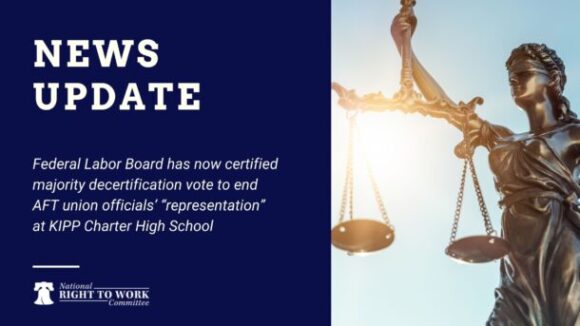Will Team Biden Weaponize Workers’ Pensions?
Big Labor abuse of worker pension and benefit funds as a means of advancing union bosses’ self-aggrandizing policy objectives is a familiar phenomenon.
Today Pennsylvania is one of just two states in which the government retains monopolies on retail sales of both liquor and wine consumed off-premises. According to recent polling, ordinary citizens in Pennsylvania overwhelmingly favor privatization of the sale of alcohol
And there’s no compelling reason to believe Pennsylvania’s governor, Democrat Tom Wolf, really disagrees with the majority of his constituents about whether, in principle, the state government should maintain a monopoly over retail liquor and wine sales. But in practice Mr. Wolf does vehemently oppose privatization, no doubt primarily for one highly political reason: United Food and Commercial Workers (UFCW) union bosses wield monopoly-bargaining and forced-dues privileges over thousands of employees at government-controlled liquor stores in the Keystone State today.
The UFCW hierarchy knows that, if Pennsylvania’s liquor and wine sales are privatized, there’s a strong possibility employees will ditch the union. According to labor economists Barry Hirsch and David Macpherson, government employees in Pennsylvania are nearly seven times as likely be unionized as private-sector employees. That’s largely because government employers know government union bosses will be a powerful lobbying force helping them get more taxpayer funding for their agency if they supinely acquiesce to Big Labor monopoly bargaining and forced union dues. Private employers have no remotely equivalent incentive to sell out their employees’ individual freedom.
Along with rank-and-file citizens, the editorial boards of major newspapers and other opinion leaders in Pennsylvania support liquor-and-wine privatization. A recent editorial by the Harrisburg-based daily Patriot-News, for example, declared: “The state should not be in the liquor business any more than it should be in the building materials industry, for example — the business in which the Wolf family made its money.” (See the link below for more information.)
Democrat politicians in Pennsylvania depend heavily on the the forced dues-funded union political machine to get elected and reelected. Consequently, if UFCW union bigwigs across the state regard liquor store privatization as a threat to their money and clout, the highest-ranking Democrat elected official in state politics is bound to oppose privatization. Hence Mr. Wolf’s recent veto of an alcoholic beverage sales-privatization bill that proponents plausibly contend would have added $220 million to state treasuries without raising anyone’s taxes.
Of course, this is not how the governor publicly explains his support for perpetuating a government monopoly over the sale of alcoholic beverages other than beer. Instead, he claims that what the Pittsburgh Post-Gazette has rightly described as a “Soviet-style system that’s unresponsive to consumers and slow to change” is somehow superior to a free market in the distribution of wine and spirits.
But, apart from Big Labor bosses, hardly anyone purports to believe the governor’s explanation. The Patriot-News editorial summed up why not:
The monopoly of the state selling liquor, Wolf claims, is better than competition. It’s a counter-intuitive argument, and one that we don’t buy. Competition among businesses that want to make money isn’t preferable to a state-run system? Isn’t private enterprise a cornerstone of the American economy? Also, 48 other states have privately run liquor systems. None are clamoring for the state to take over what should rightfully be a private business.


Big Labor abuse of worker pension and benefit funds as a means of advancing union bosses’ self-aggrandizing policy objectives is a familiar phenomenon.

What impact does handing a union monopoly power to deal with your employer on matters concerning your pay, benefits, and work rules have on your pay?

Federal Labor Board has now certified majority decertification vote to end AFT union officials’ “representation” at KIPP Charter High School